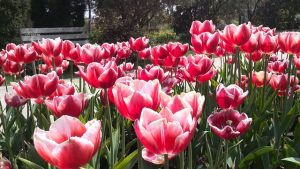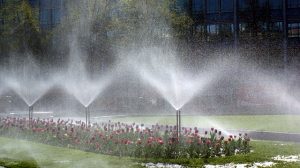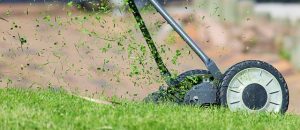Landscape Ideas for Saving on Energy
Guest Post by Joel Sidaka
 Would you believe that with strategic landscaping, you would be able to save money, increase property value, and make your place look more appealing?
Would you believe that with strategic landscaping, you would be able to save money, increase property value, and make your place look more appealing?
Yes, you read it right, by following some of these property renovations, you will be able to conserve energy through landscaping.
6 Ways to Save Energy Through Landscaping
1. Pay Attention to the Wind
The first on the list of our property maintenance tips would be to pay attention to the wind and utilize fences or shrubs to guide direct cooling breezes to your property.
Aside from that, you will also be able to stop the sun from directly hitting your home and turning it into an oven. You should also consider planting large evergreen trees on the west side of your home, as it would effectively block the hot rays of the afternoon summer sun.
Drought-tolerant plants are also helpful, because they could decrease the effects of humidity as well.
Also refrain from directly planting thirsty plants near your home. . . Instead, put them in the corners of your garden.
2. Proper Shading Is Also Important
You also have to pay attention to where you are going to plant the trees.
Many landscapers suggest that you plant them on the west windows and the east should be your next priority.
Also, choose a tree that could be planted within 20 feet of the window, and would be at least 10 feet taller than your window. By doing so, you will have the assurance that you will get ample shade from it.
If you are thinking of planting a tree to protect you from the noon sun think again.
During summer, the sun is high at noon, which means that the tree shadow would fall directly under it, and would not be able to shade your home.
On the other hand, during winter, the shadow of the tree would fall on the house all throughout the day. Thus, it is not efficient at all.
3. Natural, Organic Mulches Are Heaven-Sent
If you’ve been doing DIY landscaping for the past few years, you probably know by now that watering flowerbeds are nothing but a necessity; since all plants need water, even the healthy ones.
However, there are also steps that could help you improve the health of your plants, and make them last longer even if you fail to regularly water them.
Not just that, it is also possible to make them heat resistant.
Organic mulches, such as wood chips are perfect for this.
You simply have to place the mulch around the roots of the trees and flowerbeds.
4. Maximize Dead Spaces
If you want to insulate your home in both summer and winter, then you should consider planting shrubs, vines, and bushes close to your property.
Make sure that as they mature they is space between them and your house as well as from each other.
5. Be Responsible When Watering
If you really want to control your energy use, it is important that you become responsible on how you use water.
According to the US EPA, its ideal to water your plants when the weather is cool, this is early morning.
Likewise, the sprinklers should be set to water only selected areas.
This would also help you prevent wasting water on other parts of the yard.
Invest in rainwater tanks and you can use the water you have collected for watering your plants.
Do not forget to check the taps, hoses, and plumbing to see if there are any leaks that need fixing.
6. Go Manual Whenever You Can
During the hot summer months, it is ideal to modify and raise the mower’s cutting height to let the grasses grow long.
This would not only shade the roots, but would also reduce the occurrence of browning.
As for the equipment, use manual tools whenever possible in order to conserve energy.
If you really have to use larger equipment, then just rent or borrow one. This would prevent you from overspending.
Final Words
Having a green landscape on your property can be your first step toward a more sustainable conservation movement.
Although it might seem like it will not do much, after quite some time, you will realize that there is great potential behind it.
By making your landscape more energy efficient, you will be able to save a few dollars, which you can spend on other things.